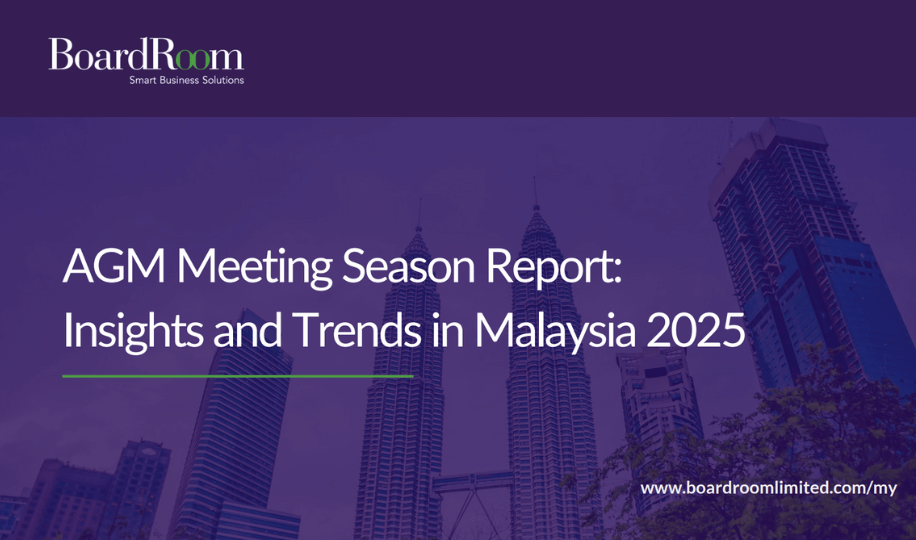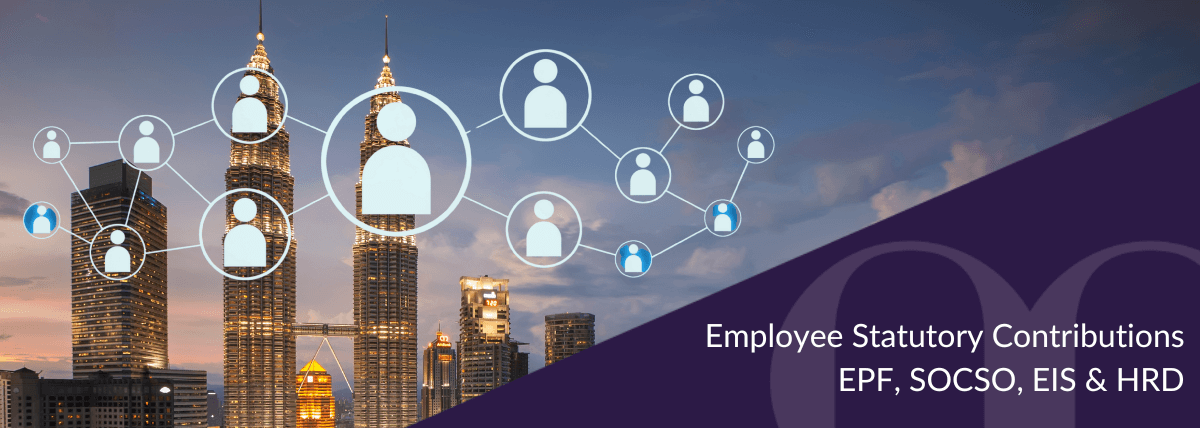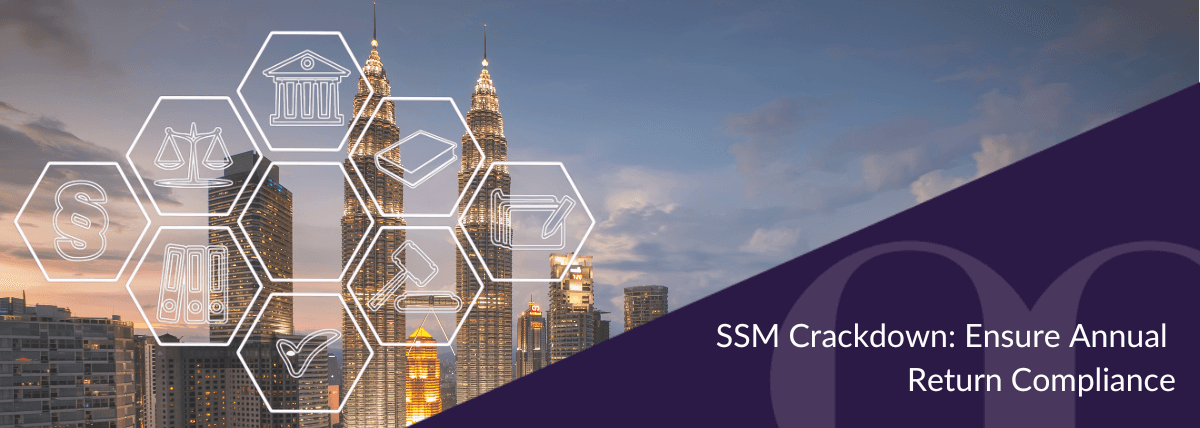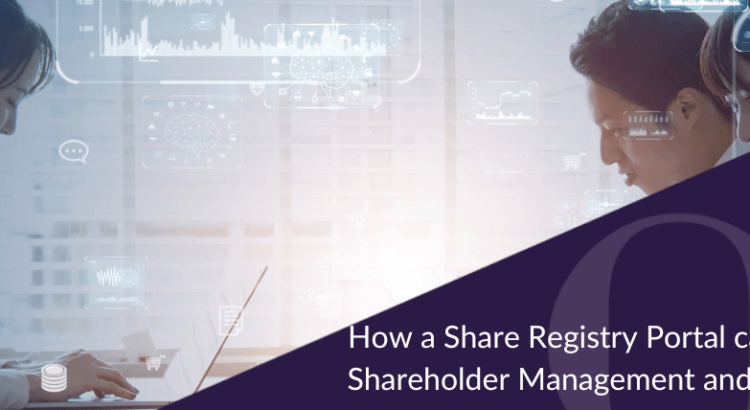Unveiling Insights into Malaysia’s Annual General Meetings (AGMs)
The 2025 AGM meeting season in Malaysia reflects a dynamic shift toward physical and hybrid meeting formats, driven by regulatory changes and a focus on enhanced shareholder engagement. Companies are adapting to evolving expectations by leveraging advanced digital tools and hybrid-ready solutions to ensure compliance and accessibility. At BoardRoom Malaysia, our expertise in managing AGM meetings underscores our leadership in delivering seamless, engaging, and compliant shareholder experiences.
Our comprehensive report, based on data from AGM and EGM proceedings in 1H 2025, provides actionable insights into meeting trends, attendance patterns, proxy form processing, and strategies to optimise shareholder participation.
Discover how you can navigate the busy AGM season effectively while balancing regulatory demands and stakeholder expectations.

Key Takeaways:
- Plan AGM Timelines Early: With a high volume of AGMs in May and June, secure optimal dates and venues early to ensure sufficient preparation time for financial reporting and stakeholder engagement, avoiding resource constraints and boosting attendance.
- Embrace Hybrid Meeting Formats: Balance in-person and virtual accessibility by partnering with reliable service providers equipped with robust AV and digital infrastructure and support for live streaming, e-voting, and real-time polling. This ensures a seamless and compliant AGM meeting experience for both your company and your shareholders.
- Boost Attendance with Hybrid AGMs: Address logistical barriers of physical meetings by adopting hybrid formats that enhance participation while maintaining in-person interaction.
- Streamline Proxy Form Processing: Manage the surge in proxy forms in the second quarter, particularly in May, by leveraging digital share registry portals like BoardRoom Smart Investor Portal (BSIP) for efficient e-Proxy submissions and enhanced shareholder engagement.
- Optimise Meeting Duration: Streamline agendas and allocate timed Q&A segments to manage longer meetings driven by increased shareholder interaction in physical and hybrid formats. Invest in robust technology and pre-meeting rehearsals to minimise delays.
- Leverage Digital Tools for Support: Utilise BSIP’s self-service features, such as e-Proxy submissions and annual report downloads, to manage high call volumes during peak AGM months (February and June) and ensure seamless shareholder support.
- Enhance Attendee Experience: Offer cost-effective door gifts and refreshments, such as branded merchandise or locally sourced items, to strengthen shareholder relations and encourage in-person attendance at physical meetings.
Download the full report to read about the AGM meeting trends and gain actionable strategies for optimising your AGM practices, ensuring compliance, and fostering meaningful shareholder engagement.
Related Business Insights
-

07 Oct 2025
Employee Statutory Contributions: EPF, SOCSO, EIS & HRD
Learn how to manage Malaysia's statutory contributions, EPF, SOCSO, EIS & HRD, with clear guidance on compliance, b …
READ MORE -

11 Sep 2025
SSM Crackdown: Ensure Annual Return Compliance
Act now on annual return compliance in Malaysia. Learn what the SSM crackdown means and how BoardRoom Malaysia can …
READ MORE -

17 Jul 2025
The Future of AGM Shareholder Meetings
Learn how hybrid AGM shareholder meetings are strengthening compliance and boosting engagement for listed companies …
READ MORE























